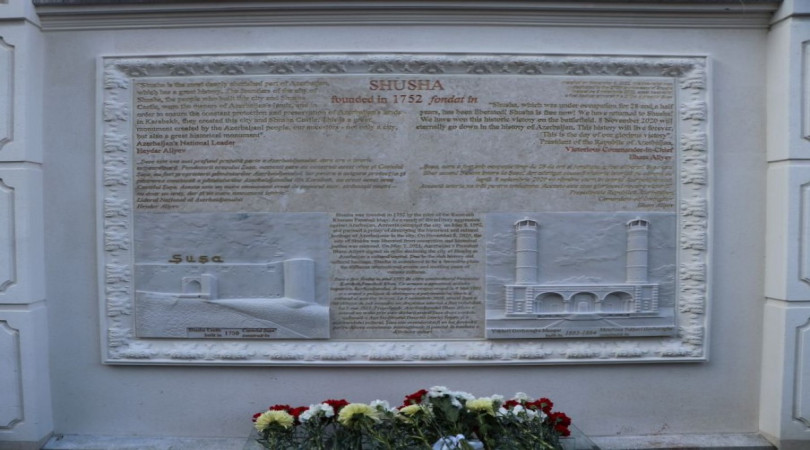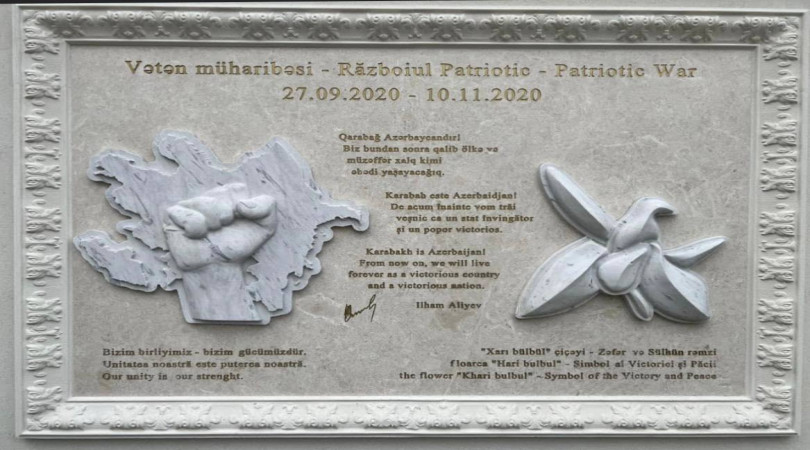Huseyn Javid
Huseyn Javid
(1882-1941)
Huseyn Javid (Huseyn Abdulla oglu Rasizadeh) was born on 24.10.1882 in Nakhchivan and died on 5.12.1941 in the province of Irkutsk in deportation.
He is a prominent poet and dramatist of Azerbaijan. He was born in Nakhchivan in the family of a clergyman, the primary education he got there in mollakhana, the secondary education in a new-method school 'Mektebi-Terbiye' founded by M.T.Sidgi, a prominent intellectual and teacher(years 1894-98). Here he writes the first poems in classical style under the pen-names 'Gulchin' and 'Salik'. In 1899-1903 he had been to Southern Azerbaijan and continued his education in Talibiyye school of Tebriz. He had graduated from the literary section of Istanbul University (1909) and gave lessons first in Nakhchivan, then in Ganja, Tiflis, and in 1915 in Baki.
Javid's literary heritage was inspired by ancient Eastern culture, having an important, gradually sparkling, the ever-living position taken in Azerbaijan culture, literary thinking, and the treasure of the theatre, as well as from patterns of Azerbaijan classical poetry and from deeply moral-philosophical samples. He is one of XX century Azerbaijan romantism.
Javid's heritage is literary rich in genre and form. He is the author of lyrical poems, lyrical and epic poems, the first prosaic tragedy and dramas in Azerbaijan literature. His first book of poems "Kechmish gunler" was published in 1913. Lyrical poems of social, philosophical and ethical Caracter prevailed at the beginning of his creativity ("Oksuz Anver", "Choban turkusu", "Kichik serseri", "Dun ve bu gun", "Gadin", "Gormedim", "Veremli gəz" etc.) where he gave the description of troubles of a human in the family and in his life, tyranny, and injustice of the time and difficulties brought by it. In "Mezlumlar uchun", (1914) "Guruba garshə", "Herb ve felaket" (1916) "Herb allahə garshəsənda" (1917) is the reflection of hatred to the wars and imperial policy, bringing troubles to the mankind.
Huseyn was generally known as a dramatist. His philosophical and historical tragedies, family-life dramas created a new step in Azerbaijan dramaturgy, from the point of stylistics, the norm of writing, the innovation of the form, and enriched the culture of the national theatre in a new sense. He highlighted worldwide, social and political, and cultural problems in a special way. The first prosodic play 'Ana' (Mother) (1910) praises nobility, loyalty, courage, in tragedy 'Maral' (1912) he speaks of the personality and freedom of a woman, in the first prosaic tragedy of Azerbaijan literature 'Sheykh Sanan'(1914) he protests national and religious fanatism separating people.
The same ideas are repeated in the drama "Sheyda" (1917), and the epic "Haggini sen mubarize ile ala bilersen" (1918).
In tragedy 'Iblis' (1918), having a particular place in his creativity, all reactionary, pressing forces of the time, imperialist spheres - the best cultural wilds of the XX century are generalized in the personage of 'Iblis'(The Devil).
In historical dramas written by him in 20-30-s, such as "Peygamber" (1922), "Topal Teymur" (1925), "Sayavush" (1933), "Khayyam" (1935), the role of historical figures, the ruler and the people, free thought and reaction are the main problems he overviewed with poetic language.
Javid's poetry is different for its literary artistism, deep emotiveness, and sincerity.


















